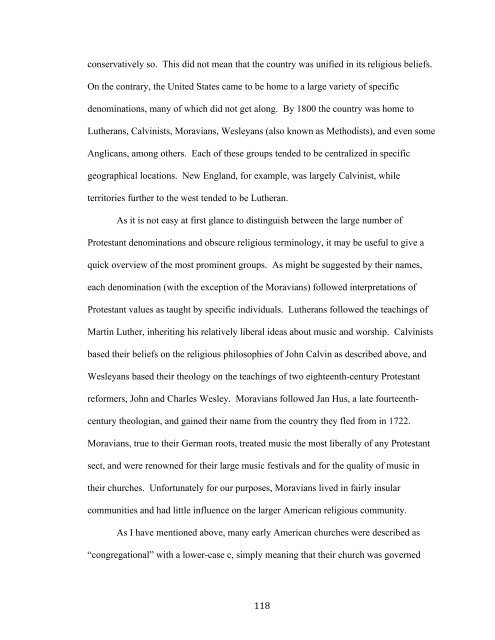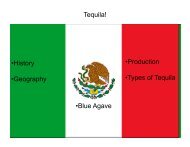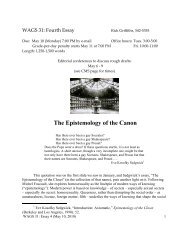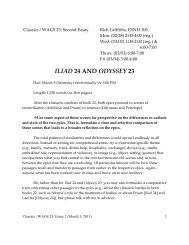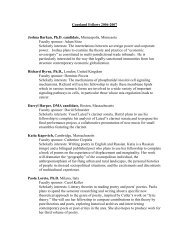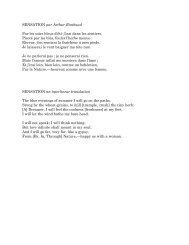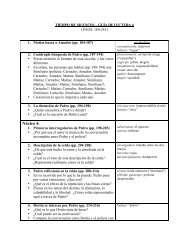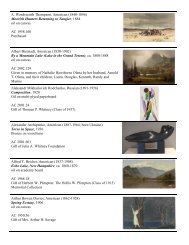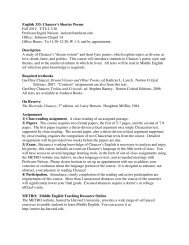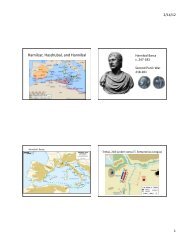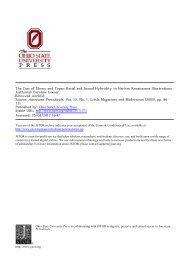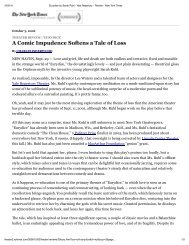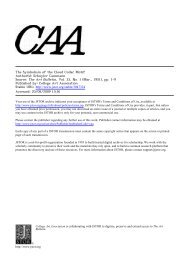Finding Their Voices - Amherst College
Finding Their Voices - Amherst College
Finding Their Voices - Amherst College
You also want an ePaper? Increase the reach of your titles
YUMPU automatically turns print PDFs into web optimized ePapers that Google loves.
conservatively so. This did not mean that the country was unified in its religious beliefs.<br />
On the contrary, the United States came to be home to a large variety of specific<br />
denominations, many of which did not get along. By 1800 the country was home to<br />
Lutherans, Calvinists, Moravians, Wesleyans (also known as Methodists), and even some<br />
Anglicans, among others. Each of these groups tended to be centralized in specific<br />
geographical locations. New England, for example, was largely Calvinist, while<br />
territories further to the west tended to be Lutheran.<br />
As it is not easy at first glance to distinguish between the large number of<br />
Protestant denominations and obscure religious terminology, it may be useful to give a<br />
quick overview of the most prominent groups. As might be suggested by their names,<br />
each denomination (with the exception of the Moravians) followed interpretations of<br />
Protestant values as taught by specific individuals. Lutherans followed the teachings of<br />
Martin Luther, inheriting his relatively liberal ideas about music and worship. Calvinists<br />
based their beliefs on the religious philosophies of John Calvin as described above, and<br />
Wesleyans based their theology on the teachings of two eighteenth-century Protestant<br />
reformers, John and Charles Wesley. Moravians followed Jan Hus, a late fourteenthcentury<br />
theologian, and gained their name from the country they fled from in 1722.<br />
Moravians, true to their German roots, treated music the most liberally of any Protestant<br />
sect, and were renowned for their large music festivals and for the quality of music in<br />
their churches. Unfortunately for our purposes, Moravians lived in fairly insular<br />
communities and had little influence on the larger American religious community.<br />
As I have mentioned above, many early American churches were described as<br />
“congregational” with a lower-case c, simply meaning that their church was governed<br />
! 118!


